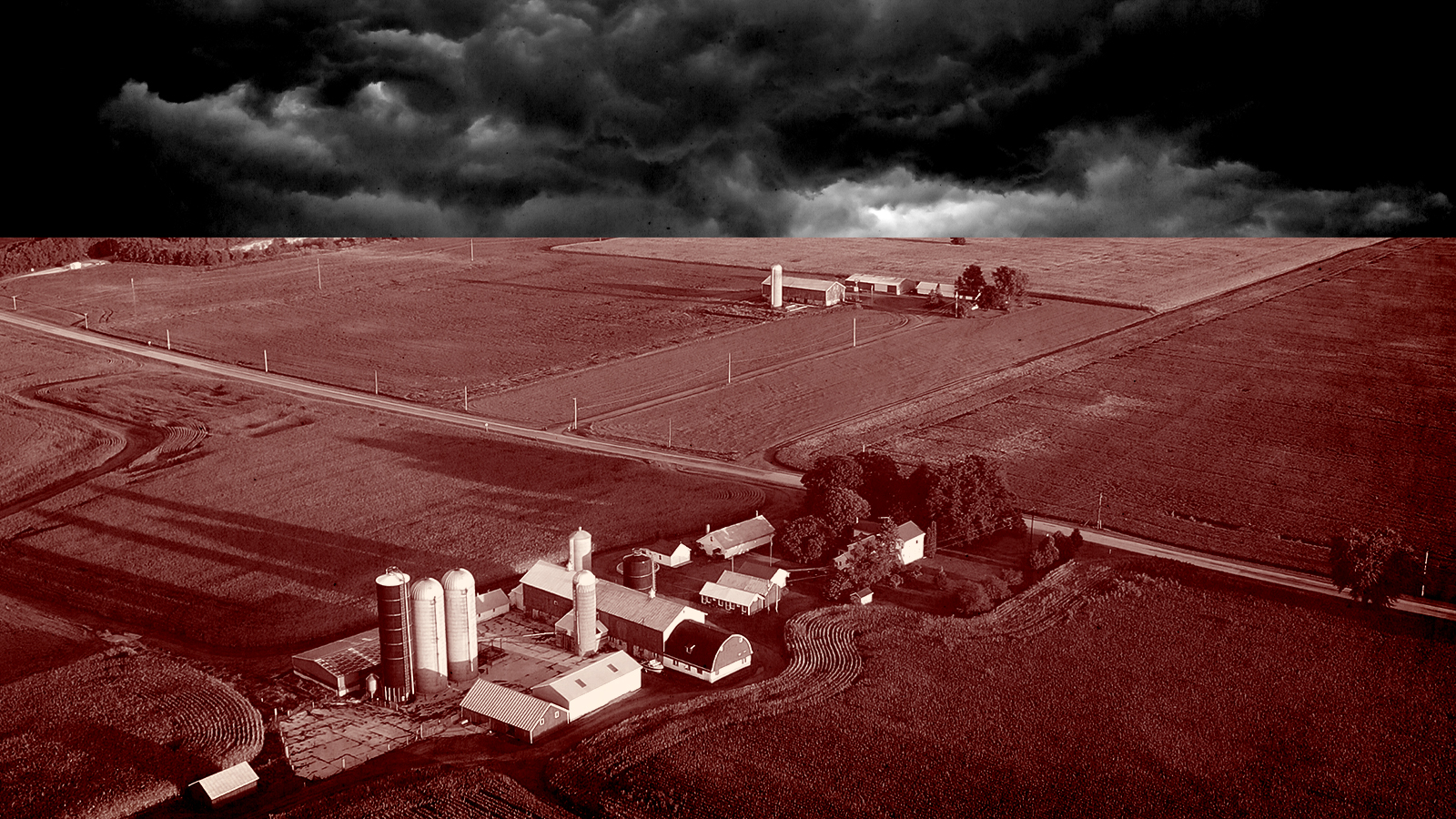Is rural America becoming a new Confederacy?


A free daily email with the biggest news stories of the day – and the best features from TheWeek.com
You are now subscribed
Your newsletter sign-up was successful
What if the polarization of American politics and rise of right-wing populism in the Republican Party are a function of rural parts of the country becoming more like the historic South?
That is the surprising suggestion of Will Wilkinson in a fruitfully provocative Substack post. Wilkinson is something of an expert on the subject, having done important empirical work on the role of population density in driving political polarization and populist backlash. His argument, in sum: Polarization and populism are caused by urbanization and its economic, social, and political consequences, with cities growing demographically and economically, and becoming more progressive, over time, while depopulating rural areas succumb to economic decline and zero-sum, reactionary politics.
In his latest post, Wilkinson merely extends this research a few steps by observing both an increasing cultural homogenization across different rural areas, each of which used to be more distinctive, and the growing prevalence of Confederate flags far outside of the historic South, in the rural areas of northern states and states that didn't even exist at the time of the Civil War.
The Week
Escape your echo chamber. Get the facts behind the news, plus analysis from multiple perspectives.

Sign up for The Week's Free Newsletters
From our morning news briefing to a weekly Good News Newsletter, get the best of The Week delivered directly to your inbox.
From our morning news briefing to a weekly Good News Newsletter, get the best of The Week delivered directly to your inbox.
So far, these are merely anecdotes, but if verified by more rigorous research they could point toward something real and important: Not just growing ideological unification across the rural areas of the country, but the drift of that ideology in the direction of the Confederacy. The point isn't that the American countryside increasingly wants to avenge the honor of Southern slaveowners for their loss in a war that ended over a century and a half ago. Rather, the people who live in these areas share with the historic South an intense distrust of the federal government, veneration of local law enforcement, resentment of city folk, suspicion of minorities and foreigners, hostility to technologically driven change, and a keen sensitivity to cultural slights.
Those are the senses in which we may be living through what Wilkinson calls the "Southernification of rural America."
Wilkinson himself leaves unanswered both how and why this may be happening. On the question of how, I'd look at social media and its remarkable capacity to forge ideological solidarity across vast distances in the real world. Where prior to the rise of Facebook, Twitter, and Reddit, an angry resident of rural Maine would have found no political outlet for his rage beyond his own community, now he might link up online with likeminded residents of rural Mississippi and Oregon, recognizing a similar set of grievances and organizing a virtual community around them.
As for why growing numbers are gravitating toward Confederate ideas and iconography, it may be nothing more than an example of people grabbing onto what's at hand. The South has long produced an abundant supply of populist anger and resentment. Maybe all that has changed in our time is that there is now a much larger audience and much greater demand for that poisonous political message.
A free daily email with the biggest news stories of the day – and the best features from TheWeek.com
Damon Linker is a senior correspondent at TheWeek.com. He is also a former contributing editor at The New Republic and the author of The Theocons and The Religious Test.
-
 Local elections 2026: where are they and who is expected to win?
Local elections 2026: where are they and who is expected to win?The Explainer Labour is braced for heavy losses and U-turn on postponing some council elections hasn’t helped the party’s prospects
-
 6 of the world’s most accessible destinations
6 of the world’s most accessible destinationsThe Week Recommends Experience all of Berlin, Singapore and Sydney
-
 How the FCC’s ‘equal time’ rule works
How the FCC’s ‘equal time’ rule worksIn the Spotlight The law is at the heart of the Colbert-CBS conflict
-
 Big-time money squabbles: the conflict over California’s proposed billionaire tax
Big-time money squabbles: the conflict over California’s proposed billionaire taxTalking Points Californians worth more than $1.1 billion would pay a one-time 5% tax
-
 Did Alex Pretti’s killing open a GOP rift on guns?
Did Alex Pretti’s killing open a GOP rift on guns?Talking Points Second Amendment groups push back on the White House narrative
-
 Washington grapples with ICE’s growing footprint — and future
Washington grapples with ICE’s growing footprint — and futureTALKING POINTS The deadly provocations of federal officers in Minnesota have put ICE back in the national spotlight
-
 Trump’s Greenland ambitions push NATO to the edge
Trump’s Greenland ambitions push NATO to the edgeTalking Points The military alliance is facing its worst-ever crisis
-
 Why is Trump threatening defense firms?
Why is Trump threatening defense firms?Talking Points CEO pay and stock buybacks will be restricted
-
 The billionaires’ wealth tax: a catastrophe for California?
The billionaires’ wealth tax: a catastrophe for California?Talking Point Peter Thiel and Larry Page preparing to change state residency
-
 Trump considers giving Ukraine a security guarantee
Trump considers giving Ukraine a security guaranteeTalking Points Zelenskyy says it is a requirement for peace. Will Putin go along?
-
 Bari Weiss’ ‘60 Minutes’ scandal is about more than one report
Bari Weiss’ ‘60 Minutes’ scandal is about more than one reportIN THE SPOTLIGHT By blocking an approved segment on a controversial prison holding US deportees in El Salvador, the editor-in-chief of CBS News has become the main story
